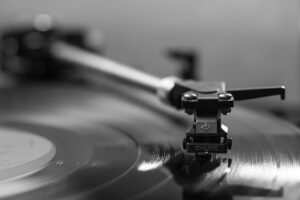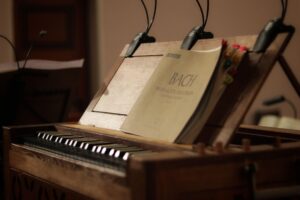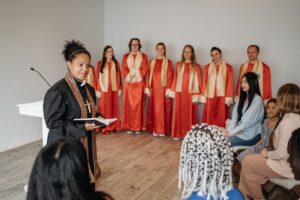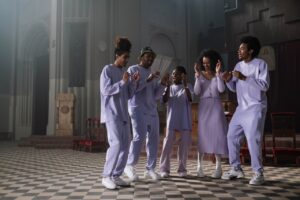How would music have evolved if there were no religion?
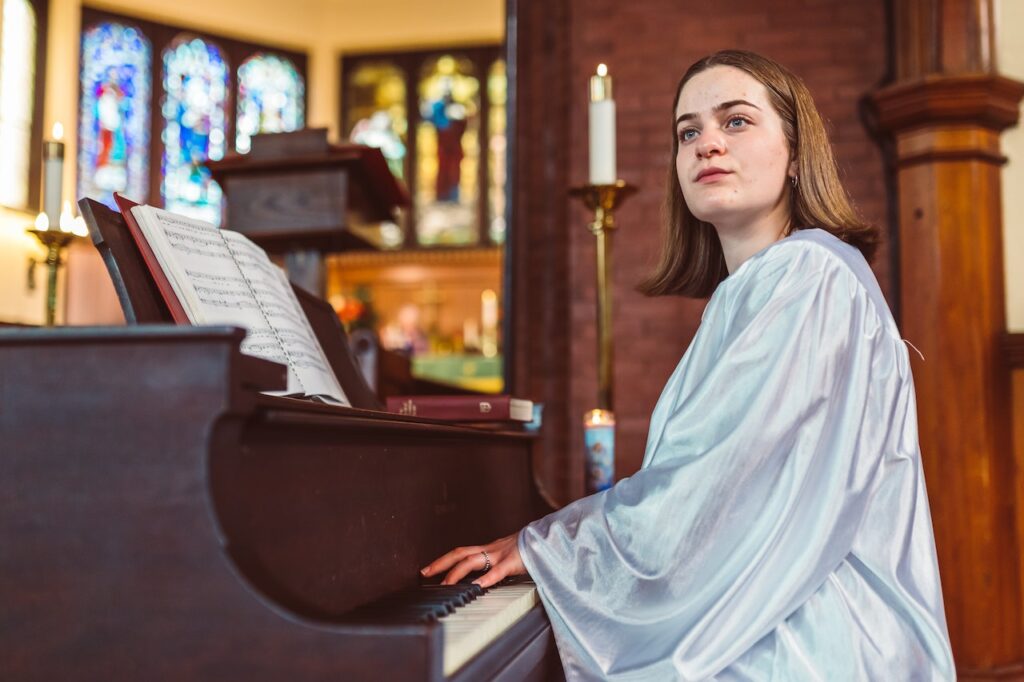
For the sake of argument, let us talk about primarily Western music. I am operating under the assumption that everyone knows what I am refferring to when I say Western music. From music of antiquity (ancient Greece, for our sake) through the Middle Ages, music was interwined with the dealings of the church. Until the unification of the churches by Charlemagne, music and the liturgy was widely varied throughout the churches of the west. It wasn’t until Pope Gregory the Great (and I use that term only because of his historical significance) that music became unified and codified within the Roman Catholic liturgy. This music, most often, is known as Gregorian chant. It was latin, monophonic, has a very low intervallic range, and had two different outputs from which it was sang: the Mass and the Offices. I won’t go in to further detail about these, as it is not important to the set up of the initial question. Music of the religious sort is termed sacred.
There was music outside of the church. Secular musicians were among the most inventive and virtuoso of the time. The troubadores and trouveres of France, and the Minnesingers and the Meistersingers of Germany; these being the most common secular musical performers and composers of this time. With that said, music was mostly influenced and progressed by the Roman Catholic Church, and even as the Protestants arose this remained so. The Renaissance saw more secular music unfolding, and more with the Baroque (despite Bach writing most of his music for the Church, I do not feel his music was actually “inspired”, as his genius and artistic precision says otherwise. It may have just been a job, but I can only speculate at this point), but the Classic era saw even more pulling away from the religious world. Eventually in the Romantic, most music was secular, if I may. Until now most artistic music (in the 20th century and beyond) is mostly secular with maybe an influence from religion here and there among composers.
History lesson aside, I want to really get some feedback on this point: how would music have evolved if there were no religion? Why was it so tied to the church? For religious reasons, or something else? Perhaps the most intersting question is, would it have evolved faster? As we see music becoming increasingly secular, we also see a faster evolution of harmonic language, form, and the very sound of the music becoming an extension of the composer and his emotions rather than an inspiration from god. After careful thought, the answer may just be yes. Without religious restrction on philosophy, science, etc., those practices would, perhaps, be even more greatly advanced. Could the same be said of musical concepts, theory, harmony, and language?
I would prefer thoughtful and intelligent answers within this discussion board. I am preparing to research this topic, and want to find more sources for it (as well as find answers through discourse), so if any one of you know a few sources that might be good to research this topic, that help would be appreciated.

